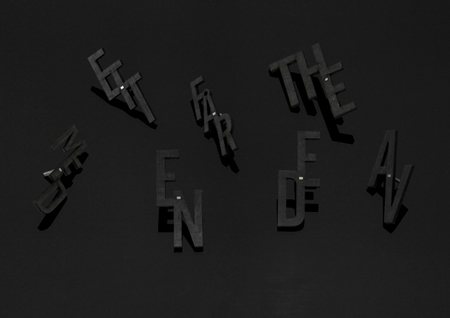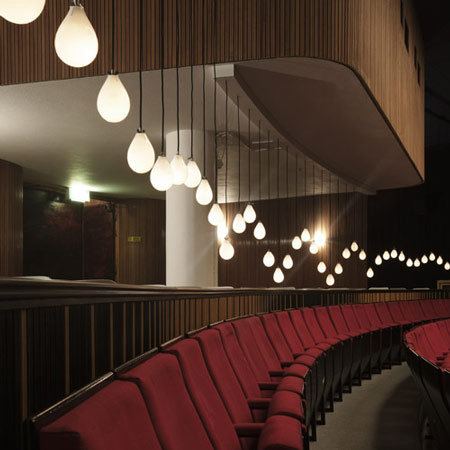
Rio Cinema by 1:2:3 and Kristoffer Sundin
Design studio 1:2:3 and student Kristoffer Sundin have developed an interior and graphic identity for the Rio cinema in Stockholm, Sweden.
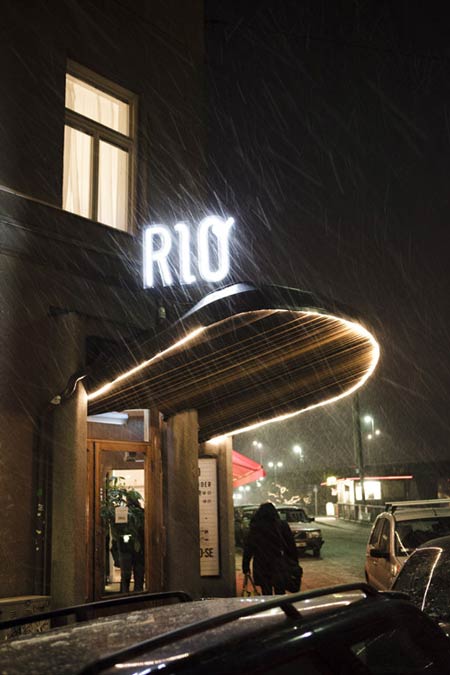
The concept echoes the original design of the 1940's cinema while accommodating the venue's events programme of seminars, theatre, art installations and musical performances.
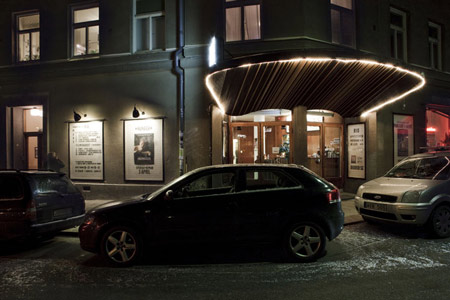
Modular furniture can be rearranged and the pendant lights can be gathered together in clusters, allowing the spaces to be reconfigured to house various activities.
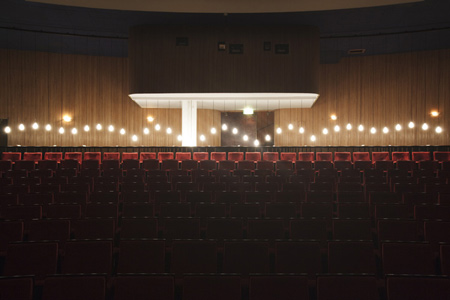
Photos are by Erik Wåhlström. Below are some more details from the designers:
--
RIO
Visible and constant change - that’s the basic concept that the design bureau 1:2:3 and Kristoffer Sundin has developed for the cinema Rio. The concept consists of interior design and a graphic identity, both of which refer back to the original design of the 1940s’ cinema, but at the same time it introduces a space in transformation.
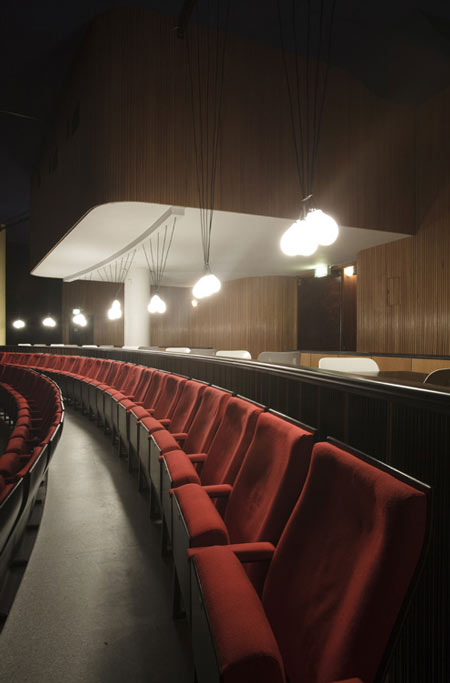
Under the name Kvartersbion, repertoire films were shown in the theatre, and in the foyer tickets and snacks were sold. The new owners, Folkets Hus och Parker, have a clear ambition to offer more varied activities. On top of the normal film programme there will be seminars, dramatic art, children’s cinema and live opera. Daytime the cinema functions as a café.
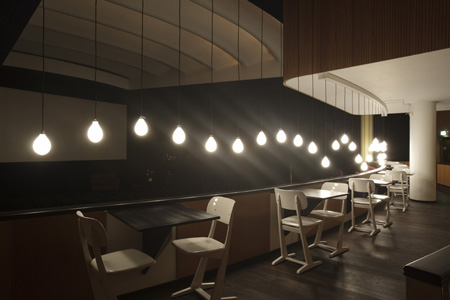
A big part of our job has been to make these different activities possible, as they put high demands on the premises and the furnishing. You must be able to rearrange the furniture and change the atmosphere in the room between a children’s movie and an opera, Petter Törnqvist says.
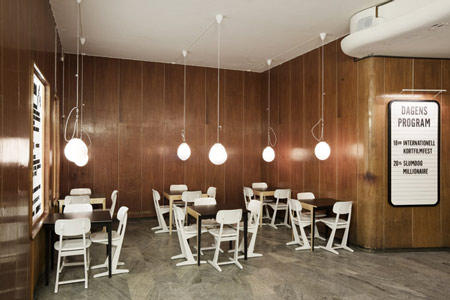
For the foyer, the three designers have developed adaptable furniture and lighting. The function of the furniture needs to be clearly displayed throughout the cinema.
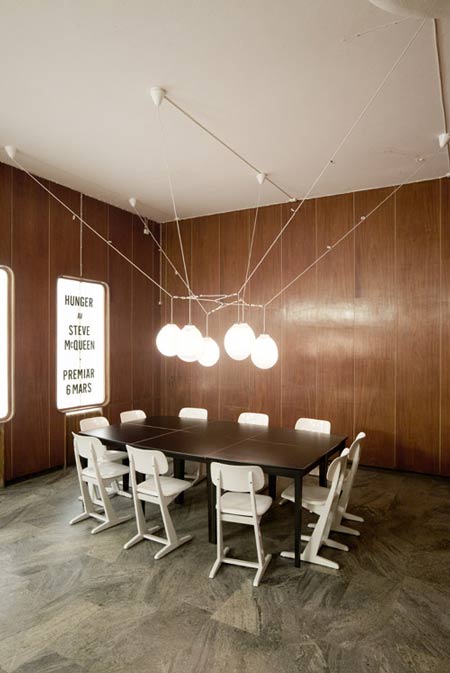
The room normally functions as a café, with the tables pulled apart and a lamp over each one. But if you sit down at a table and look around, you see that they fit together they have a common, larger form. In a similar way the lamps can be bundled together to form a large chandelier.
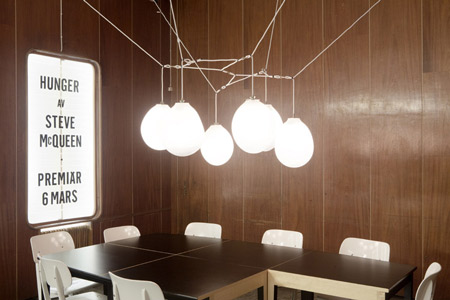
We want the clues in the furnishing to give the visitor a sense of all the possibilities of change, Axel von Friesen says.
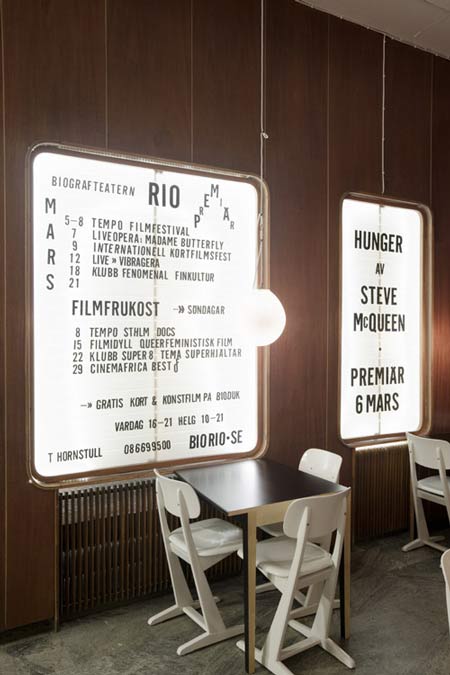
Before Kvartersbion shifted owners this autumn, it was one of few remaining independent cinemas in Stockholm after 1973. But the cinema, which is designed by Albin Stark, was opened under the name Rio in the 1940’s.
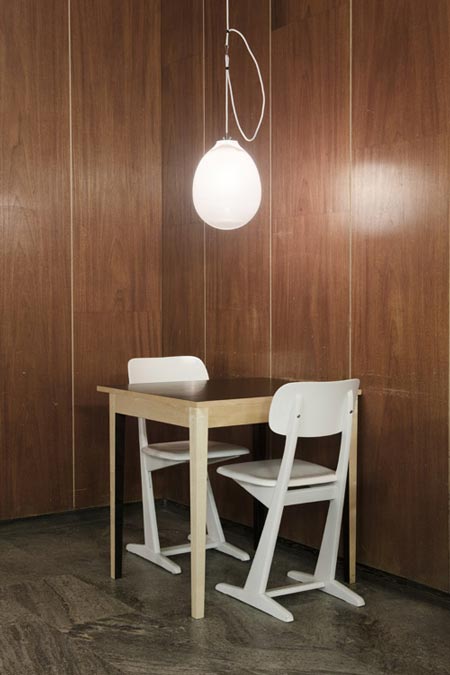
The owners have now readopted the original name, and the new concept also refers back to the original design. This has had especially big consequences for the choice of material.
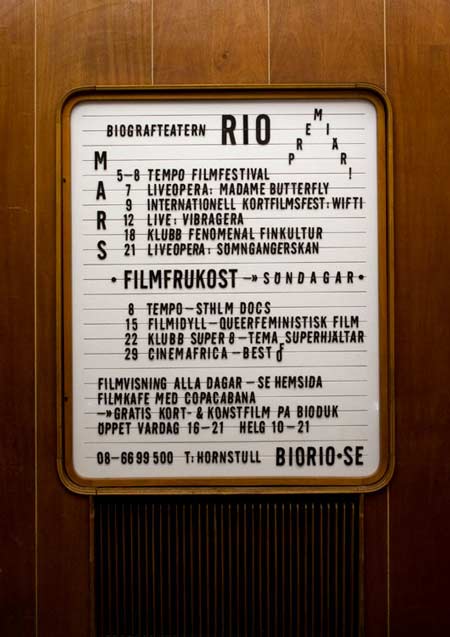
We never considered using plastic materials or painted fibreboards for the furnishing. Rio was originally characterized by exclusive materials and craftsmanship. By using lamps and tables that were built manually and designed specifically for this space, we are referring back to that concept, Kristoffer Sundin says.
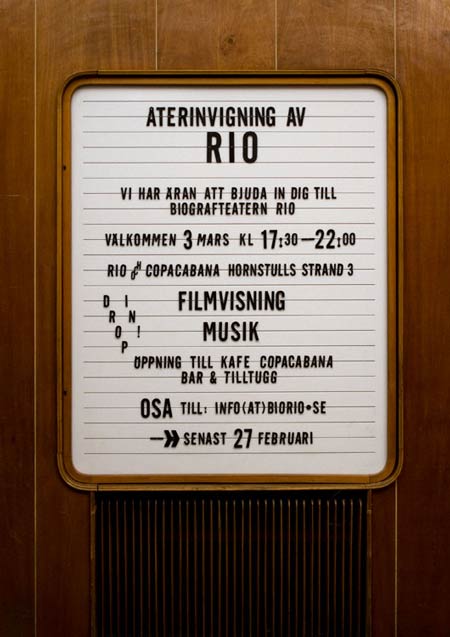
We have made use of the existing decoration in order to capture different shapes and moods. There is, for instance, a wavelike shape that we have used in the lamp suspension. We have also interpreted the wavelike shape of Rio’s old panel. It goes from light to dark in different parts of the room for example on the front of the theatre balcony, and on the canopy at the entrance, Axel von Friesen says.
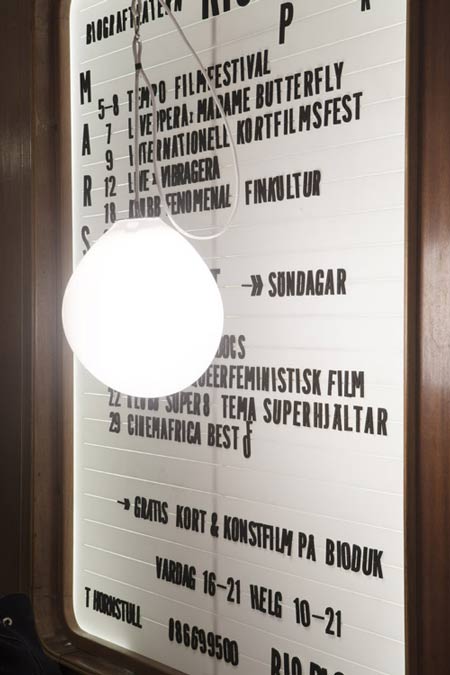
But at the same time it has been important for us to clearly show where the old stops, and where we have made additions of our own.
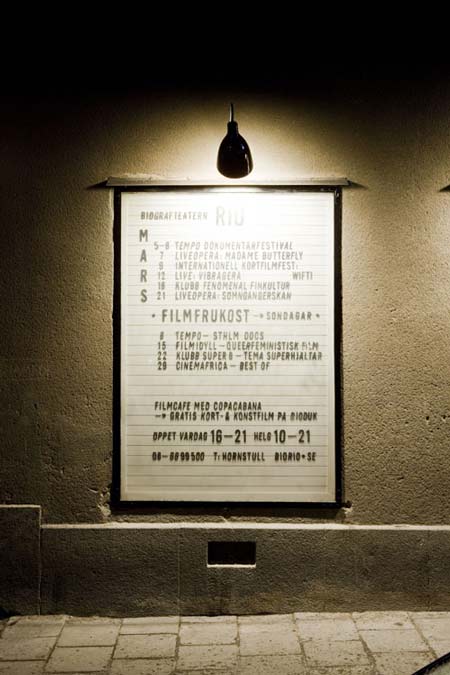
The design of the new sign system was based on the idea of the cinema as a unique physical space in constant change. And the signs are an important part of Rio’s new identity. The design group has created an alphabet in three sizes, and it is used in the sign boxes inside and outside of the cinema.
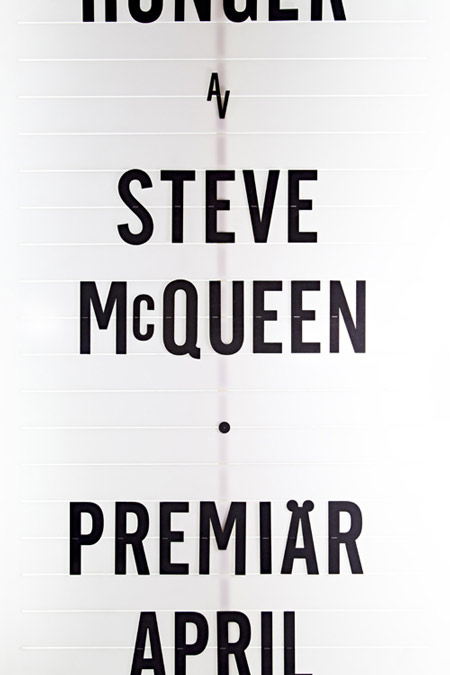
This is once again a reference to our exclusive materials and craftsmanship, Petter Törnqvist says. All signs are written manually by the staff, so the system makes the signs easy to change. By photographing them and using the photos in monthly printed programmes and digital newsletters, we create a strong connection to the actual cinema.
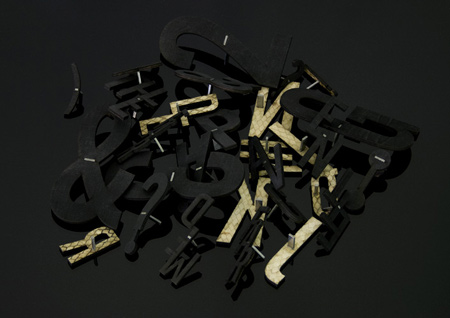
1:2:3 is founded by Axel von Friesen and Petter Törnqvist. They graduated from Beckmans College of Design in 2007 and have since then worked within numerous diciplines, including graphic design, film, interiors and art.
Kristoffer Sundin studies Interior Architecture and Furniture Design at Konstfack university in Stockholm.
